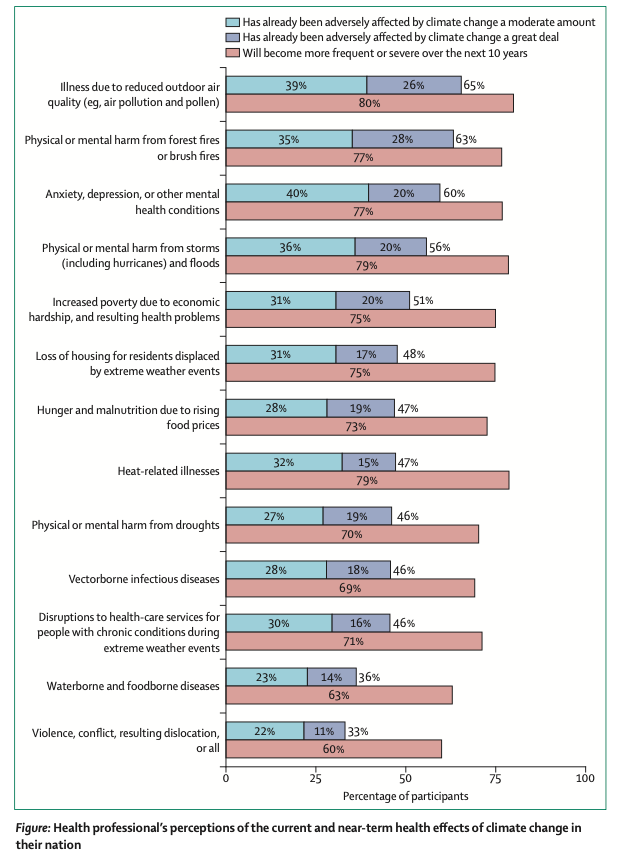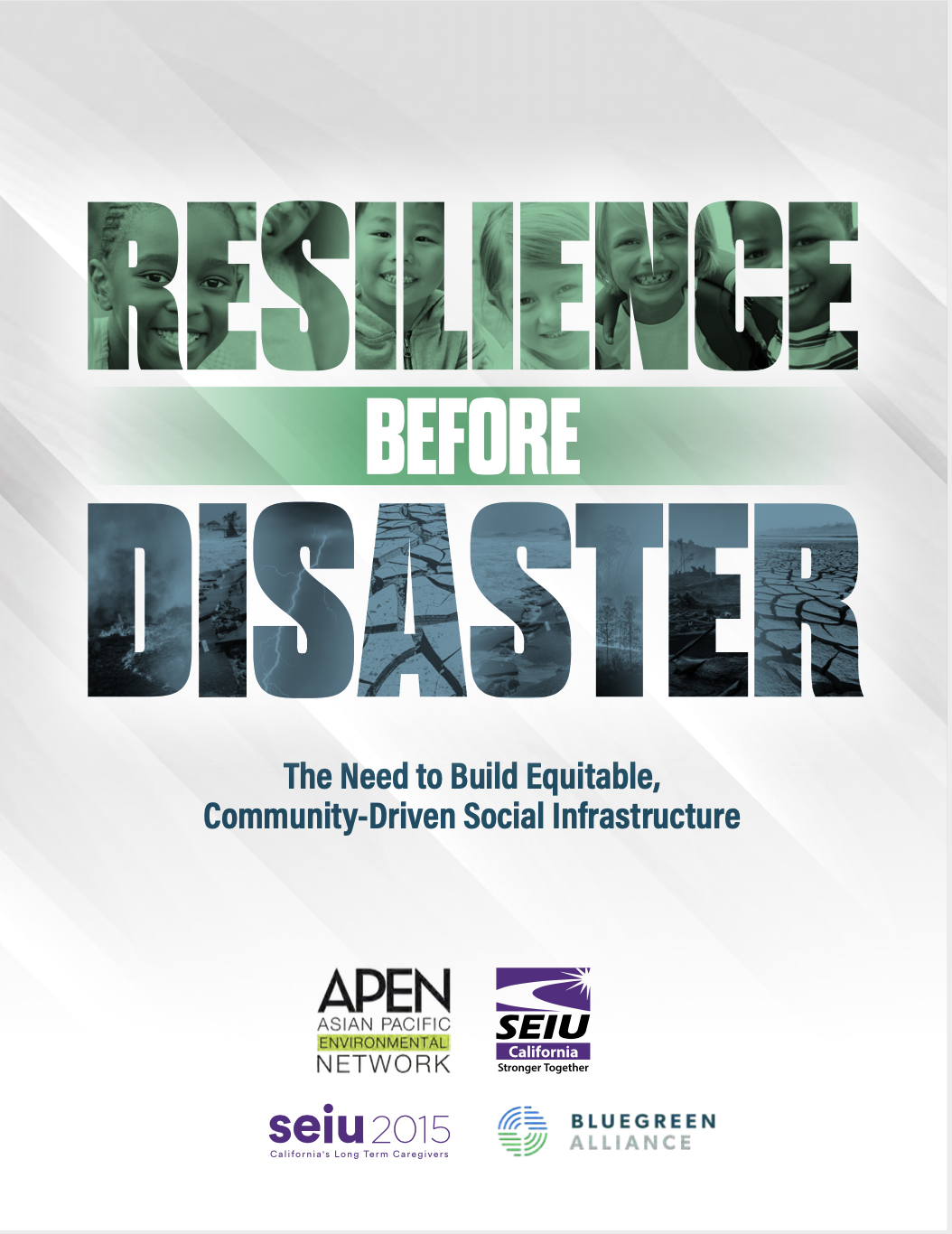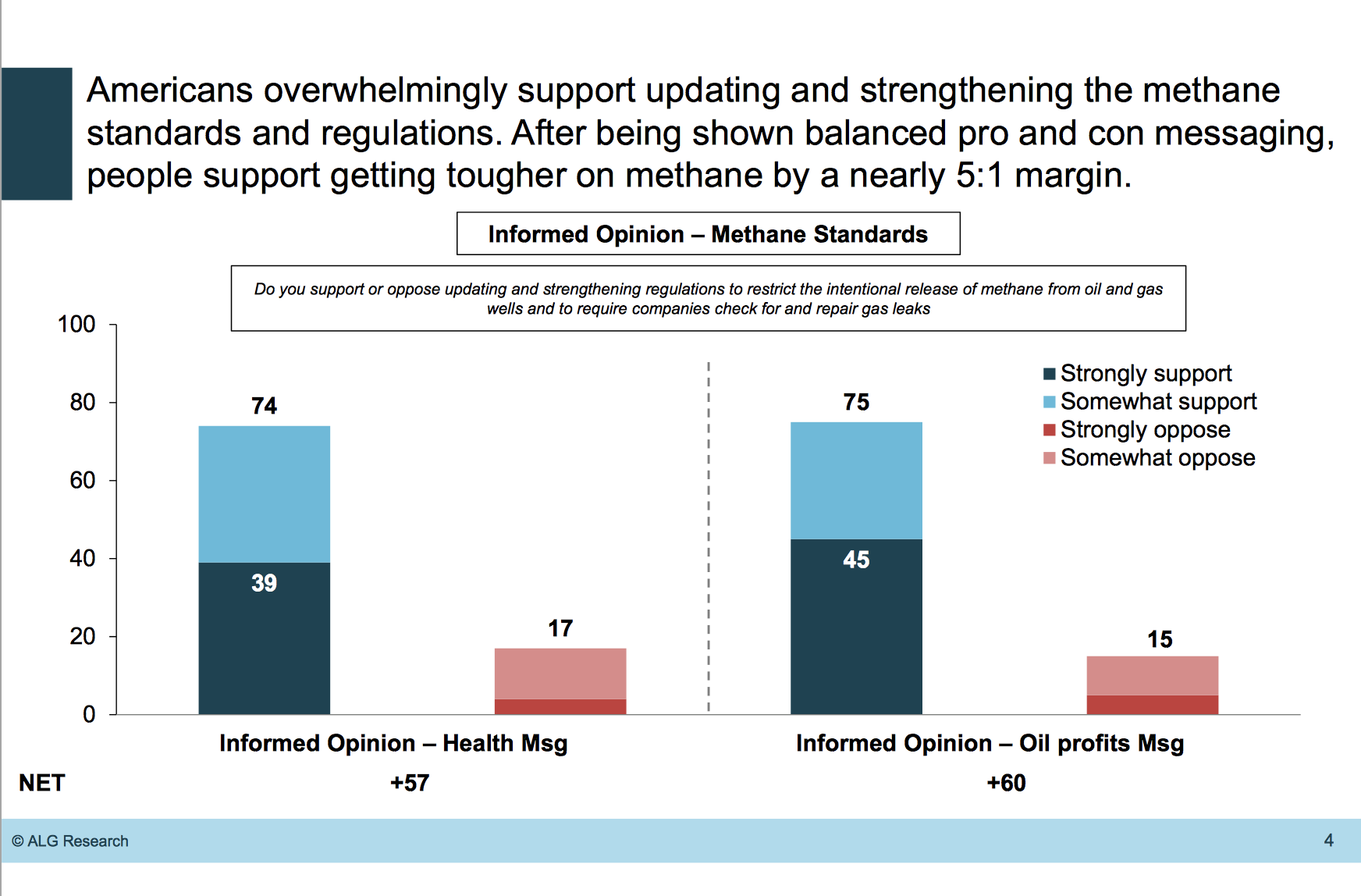Resources
Search below for resources covering the intersection of climate engagement, social science and data analytics.
RESULTS
Poll: Strong support for the EPA implementing stricter limits on carbon emissions from heavy-duty vehicles
Engaging Health Professionals on Climate
Climate change has significant impacts on health outcomes, and health professionals are uniquely positioned to leverage their voice as trusted messengers to engage their colleagues, patients, and communities to take action and shift the public conversation on climate and health.
False climate change narratives undermine health sector engagement
Discussing the health impacts of climate change is a critical approach for furthering medicine’s mission—to improve health and accelerate equity. Health professionals are increasingly learning how climate change is harming their patients’ health. And, unsurprisingly, most respondents to a 2020 multinational survey felt a responsibility to educate the public and policy makers. In most nations “left” or “right” political ideology is a weak predictor of support for climate taxes or laws. Health professionals can contribute to collective action by reflecting and building on the existing consensus on climate change.
Climate Health Master Class
Climate change increases the incidence of practically all forms of human disease. This series of lectures features field leaders in various aspects of climate change and human health, focusing on how different types of extreme weather events and patterns cause both acute, and chronic, morbidities and mortality. Scientists, clinicians and public health policy experts to generate an integrated and comprehensive picture of health threats posed by climate change.
Mental Health and Our Changing Climate: Impacts, Inequities, Responses
The American Psychological Association and ecoAmerica are pleased to offer this update of our 2017 report, Mental Health and Our Changing Climate. Since that report appeared, concerns about the mental health impacts of climate change have grown among health professionals, policymakers, and the public. Research on climate and health has accelerated and many new findings have emerged. With this update, we aim to provide readers with the information and guidance they need to stay current in this field and take effective action.
Views of health professionals on climate change and health: a multinational survey study
Medical professionals largely understand that climate change is happening and is caused by humans, view climate change as an important and growing cause of health harm in their country, and feel a responsibility to educate the public and policymakers about the problem. Despite their high levels of commitment to engaging in education and advocacy on the issue, many survey participants indicated that a range of personal, professional, and societal barriers impede them from doing so, with time constraints being the most widely reported barrier. However, participants say various resources—continuing professional education, communication training, patient education materials, policy statements, action alerts, and guidance on how to make health-care workplaces sustainable—can help to address those barriers.
Resilience Before Disaster: The Need to Build Equitable, Community-Driven Social Infrastructure
California and the US are increasingly beset by climate-fueled disasters like wildfires, extreme heat, and power blackouts. These events put additional stress on frayed hard and social infrastructure systems, and disproportionately impact working-class communities of color. To adapt to these changes, society must update our notion of disaster response to increase resilience in these systems before disasters strike. This report offers two models for this response: 1) building and normalizing resilience hubs where community members gather and organize both in good times and bad, and 2) increasing in-home resilience by recognizing homecare workers as effective agents for assisting vulnerable populations and bridging authorities and the frontlines. The report goes on to recommend specific ways to set up resilience hubs, train care workers, and develop forward-thinking emergency response plans to avert human disasters after natural disasters.
Poll: Public backs strong limits on methane pollution
Americans overwhelmingly support updating and strengthening the methane standards and regulations. Even after being shown balanced pro and con messaging, people support touger methane regulations by a nearly 5:1 margin. Curtailing leaks and releases of methane has broad support across all major demographics, including 2-to-1 support among Republicans.
Pennsylvania statewide poll shows majorities of residents across parties support policies that protect clean air (81%) and support clean energy policies (63%).
American Climate Perspectives March 2019: Health Is A Major Motivator for American Climate Action
Over Half of Americans Report Experiencing Health Impacts from Climate Change: A majority (60%) report being affected by record heat waves during summer, which can cause heat strokes and dehydration. About half (49%) report being affected by more damage and harm from extreme weather. And, nearly half (45%) report being affected by breathing problems, such as asthma.
Pagination
- Page 1
- Next page




